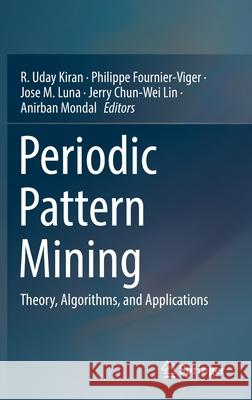Periodic Pattern Mining: Theory, Algorithms, and Applications » książka
topmenu
Periodic Pattern Mining: Theory, Algorithms, and Applications
ISBN-13: 9789811639630 / Angielski / Twarda / 2021 / 272 str.
Periodic Pattern Mining: Theory, Algorithms, and Applications
ISBN-13: 9789811639630 / Angielski / Twarda / 2021 / 272 str.
cena 603,81
(netto: 575,06 VAT: 5%)
Najniższa cena z 30 dni: 578,30
(netto: 575,06 VAT: 5%)
Najniższa cena z 30 dni: 578,30
Termin realizacji zamówienia:
ok. 16-18 dni roboczych.
ok. 16-18 dni roboczych.
Darmowa dostawa!
Kategorie:
Kategorie BISAC:
Wydawca:
Springer
Język:
Angielski
ISBN-13:
9789811639630
Rok wydania:
2021
Wydanie:
2021
Ilość stron:
272
Waga:
0.55 kg
Wymiary:
23.39 x 15.6 x 1.6
Oprawa:
Twarda
Wolumenów:
01
Dodatkowe informacje:
Wydanie ilustrowane











